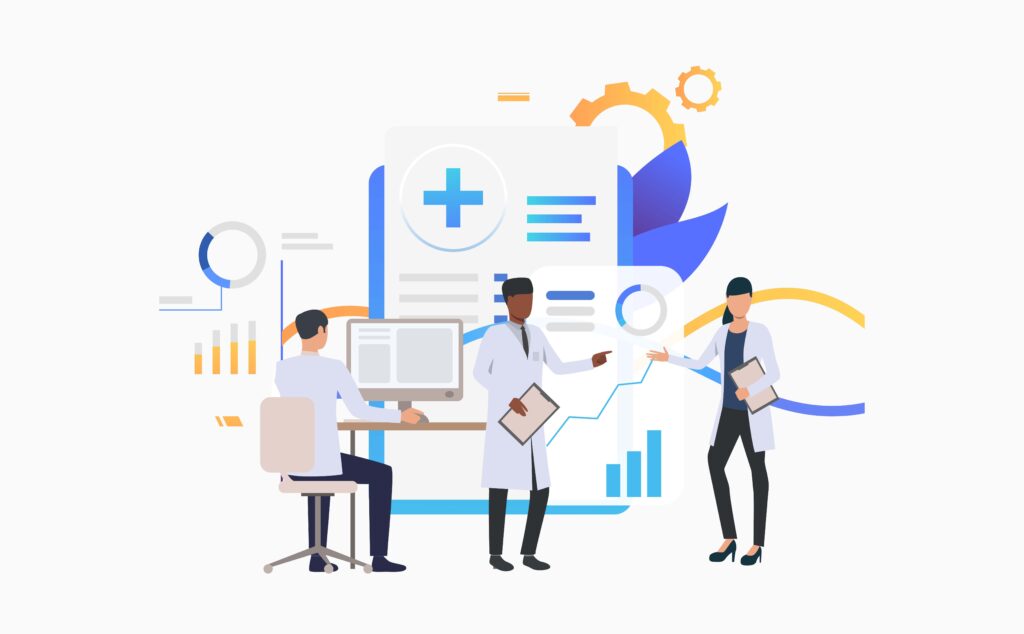In an increasingly digitized healthcare landscape, the importance of safeguarding your medical information cannot be overstated. However, despite robust security measures, data breaches in the medical sector are not uncommon. These breaches can result in the exposure of sensitive patient data, putting individuals at risk of identity theft and privacy violations. To help you protect your information during medical data breaches, we’ve compiled five essential tips that can mitigate the potential fallout and help you maintain control over your data.

1. Stay Informed and Vigilant
The first line of defense against medical data breaches is awareness. Stay informed about any data breaches that may have affected your healthcare provider or insurer. Many organizations are legally obligated to notify affected individuals in the event of a breach, so keep an eye on your email, physical mail, or any communication from your healthcare provider or insurer.
Additionally, regularly check your medical bills, Explanation of Benefits (EOB) statements, and insurance claims for any suspicious or unauthorized charges. If you notice anything unusual, investigate it promptly and contact your healthcare provider or insurer.
2. Monitor Your Credit and Accounts
Medical data breaches can lead to identity theft, which may affect your credit and financial stability. To safeguard against this, consider these steps:
-
Monitor Your Credit Report: Regularly review your credit reports from the major credit bureaus (Experian, Equifax, and TransUnion). Look for any unauthorized or suspicious activity and report it immediately.
-
Use Credit Monitoring Services: Enroll in a credit monitoring service that alerts you to any significant changes in your credit report. Many of these services also offer identity theft insurance.
-
Review Financial Statements: Regularly check your bank and credit card statements for unauthorized transactions. Report any discrepancies to your financial institution.
3. Secure Your Personal Information
While you can’t always prevent a healthcare organization from being breached, you can take steps to protect your personal information:
-
Use Strong Passwords: Create complex and unique passwords for your online healthcare accounts. Avoid using easily guessable information like your birthdate or common words.
-
Enable Two-Factor Authentication (2FA): Whenever possible, enable 2FA for your online healthcare accounts. This adds an extra layer of security.
-
Be Cautious with Emails: Be wary of emails or messages requesting personal or medical information. Verify the sender’s authenticity before sharing any data.
-
Encrypt Sensitive Information: If you need to store or send sensitive medical information electronically, use encryption tools or secure messaging platforms to protect the data.
4. Report Suspicious Activity
If you suspect that your medical information has been compromised, take immediate action:
-
Contact Your Healthcare Provider: Inform your healthcare provider or insurer about the breach or suspicious activity. They can investigate and take appropriate steps to secure your information.
-
File a Complaint: Report the incident to the Office for Civil Rights (OCR) at the U.S. Department of Health and Human Services (HHS) and your state’s attorney general’s office. This ensures that the breach is officially documented.
-
Monitor for Fraud: Continuously monitor your financial accounts, credit reports, and medical records for signs of fraudulent activity. Report any irregularities immediately.
5. Safeguard Your Medical ID
Your medical identity is just as valuable as your financial identity. Protect it by taking these precautions:
-
Guard Your Health Insurance Card: Treat your health insurance card like you would a credit card. Don’t share it unless necessary, and store it securely.
-
Shred Medical Documents: Dispose of old medical records, prescriptions, and documents containing sensitive information by shredding them rather than simply throwing them away.
-
Verify Caller Information: Be cautious when sharing information over the phone. Verify the identity of the caller and the legitimacy of the call before providing any details.
-
Secure Physical Records: If you have physical medical records at home, store them in a locked cabinet or safe to prevent unauthorized access.
Conclusion
Medical data breaches can have serious consequences, but by staying informed, vigilant, and proactive, you can protect your information and mitigate potential risks. It’s essential to monitor your credit and accounts, secure your personal information, report any suspicious activity promptly, and safeguard your medical ID. Remember that protecting your medical data is not just the responsibility of healthcare providers and insurers; it’s a collaborative effort that involves individuals taking control of their information’s security.